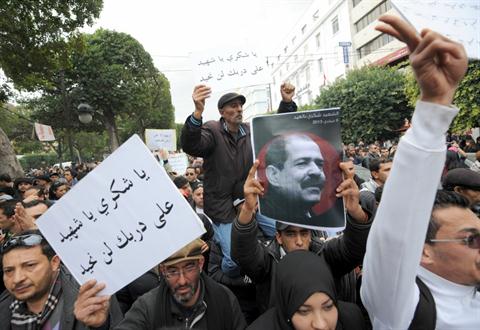As the European Union searches for solutions to its migrant crisis, a program for returning migrants in Tunisia boasts a stunning success rate. But the bigger picture is grim. Elizabeth Bryant reports from Zarzis.
Not so long ago, Imed Zouaga was working 13-hour days at a Paris-area factory, paid under the table as an illegal immigrant. At first, the long hours and loneliness seemed better than the alternative: weathering the post-revolution turmoil gripping his native Tunisia.
But during a vacation back home to this sun-washed port town, Zouaga decided to stay. “It was hard in France,” says the 49-year-old father of three, “and I missed my children.”
Today, Zouaga is back at his old job, driving a long-distance taxi from Zarzis to the capital Tunis, 550 kilometers (340 miles) north. Instead of hiring a vehicle, as he did before, he is now the proud owner of a smart red-and-white striped van, thanks to a program for returning migrants bankrolled by the French government.
Launched in 2009, it offers training to students and workers who agree to come home. Some are given seed money to open up small businesses; others land internships with Tunisian companies.
“It’s not easy to convince Tunisians who have left to study or work to return,” says Stephane Darmas, director of the French Office of Immigration and Integration in Tunisia, which runs the program. “That’s why we have different programs to encourage them to develop the businesses the country needs.”
The French initiative underscores growing European Union efforts to find solutions to a migrant crisis that has brought more than a quarter of a million people to its shores this year – on top of the massive surge in 2015. Hostility towards foreigners is also growing, partly fuelled by the recent attacks in Germany and France. The assailant in July’s truck rampage in the Riviera city of Nice, for example, was a Tunisian migrant.
Managing migration
Beyond an EU-Turkey migrant deal struck earlier this year, individual member states are trying to limit migration on their own terms. Germany, which accepted more than one million asylum-seekers last year, and is considering declaring “safe” several North African countries, including Tunisia, to make it easier to deport those who come illegally. The EU is also establishing a “partnership framework” that offers countries on the front lines of the exodus new incentives to better control their borders.
“The framework of these agreements very much focuses on migration management and incentivizing countries to cooperate in terms of managing their own borders, and also taking back either their own nationals or third-country nationals who have traveled to the EU,” says analyst Susan Fratzke of the Migration Policy Institute, a Washington-based nonprofit specializing in migration issues.
While roughly 10 percent of Tunisians live abroad, mostly in France, this tiny North African country is hardly Europe’s biggest headache. Yet it may offer a telling tale of what comes next. For those returning home – ultimately very few, experts say – or those who never left, the prospects are bleak.
Five years ago, as Tunisia’s landmark revolution touched off the broader Arab Spring uprising, thousands set off on rickety boats from towns like Zarzis, taking advantage of lax border controls to try their luck in Europe. Today, the country’s situation is perhaps even more precarious. Rising insecurity, including several terror attacks, has driven away tourists and foreign investment.
In the poorest regions – which include Tunisia’s southern Medenine governorate where Zarzis is located – up to one-quarter or more youngsters are jobless. The percentage is even higher when it comes to college graduates. Earlier this year, protests over jobs and lack of economic opportunities spread like wildfire across the country.
No silver bullet
“Everything is blocked in Tunisia,” says Abdelbasset Abdelmoumen, a former geology teacher who earned a Master’s degree in 2004, but is now looking for work. “Fixing unemployment is a real problem, especially for those of us with diplomas.”
Part of a broader migration deal between France and Tunisia, the French training program offers a ray of hope.
“We can say it’s a success,” says Faycal Dchicha, president of ADDCI, a Tunisian NGO managing the initiative in Medenine. Nearly all the start-up businesses are still running, he says, thanks to its hands-on philosophy.
“Youngsters are not just looking for financial support, but also for moral support and supervision,” he says.
Yet Dchicha is the first to admit the project is no silver bullet. Fewer than 500 people have graduated from the course to date.
“I think you need to do a great project of development that offers more chance for young people here,” he says, describing untapped opportunities in developing solar energy sector and organic farming.
Migration policy analyst Fratzke agrees that a broader strategy is needed if migration’s root causes are to be addressed. But this may not be the time to find it.
“Right now, the European public wants immediate results,” she says. “When you’re looking at large-scale infrastructure and development projects, the results are anything but short term.”




